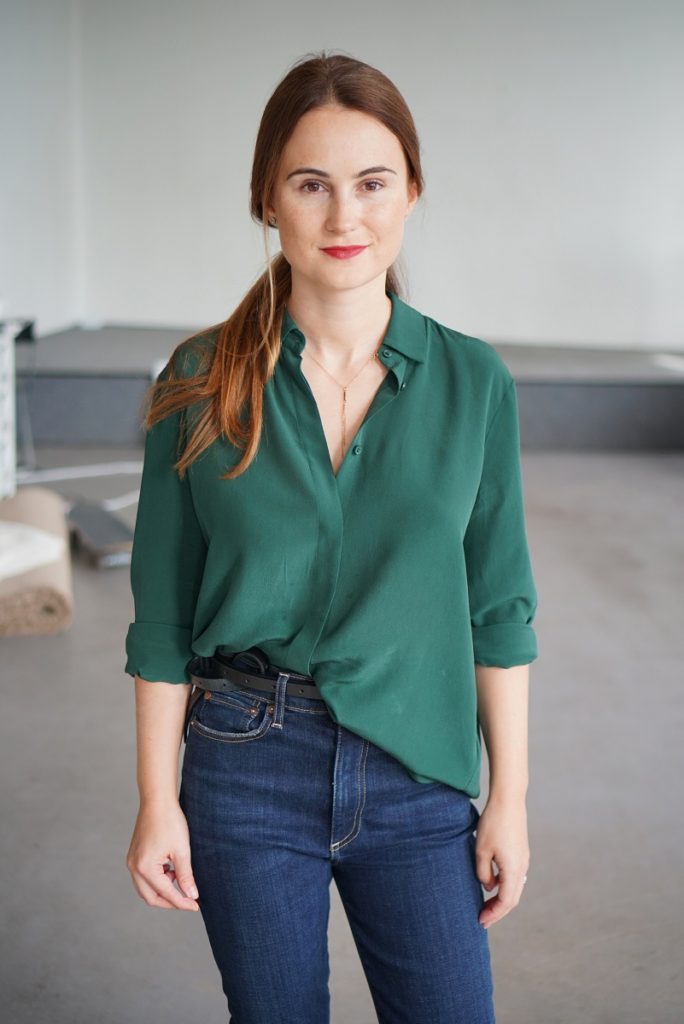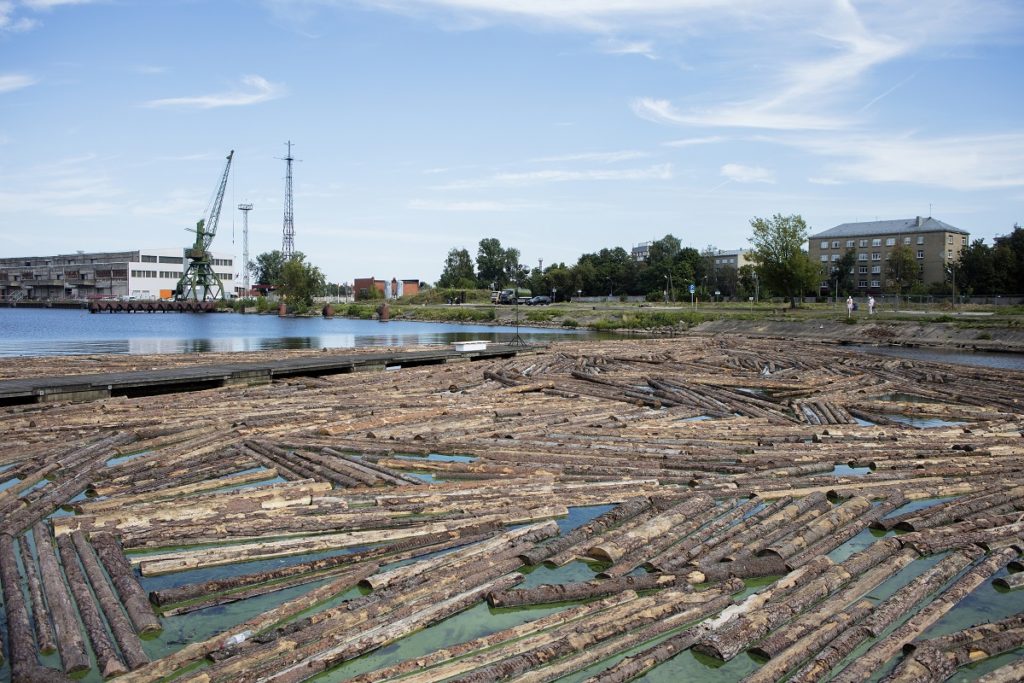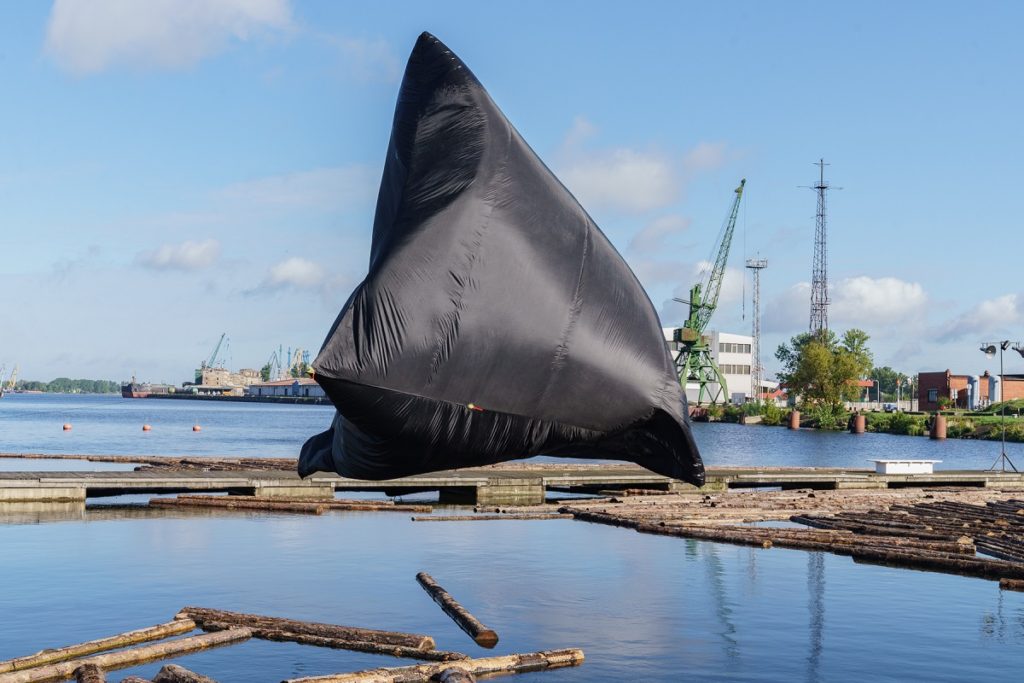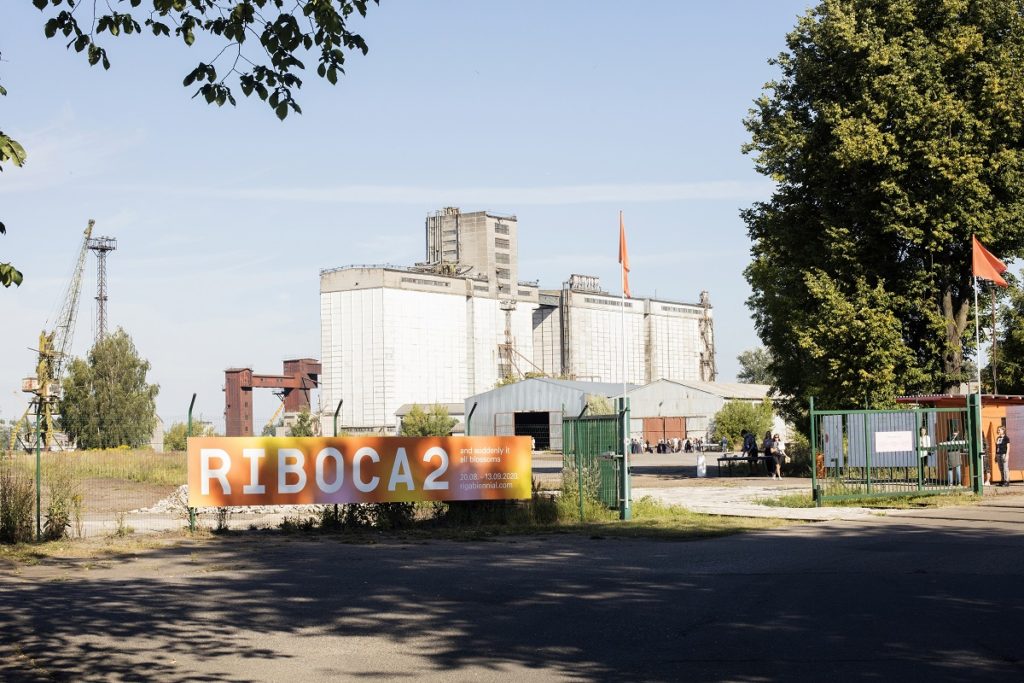5th Istanbul Design Biennial Opens on 15 October
17 September 2020“Biennials of the South on the Edges of the Global” A. Gardner and C. Green
20 September 2020Interview with Agniya Mirgorodskaya – Founder and commissioner of RiBoCa, Riga Biennial of Contemporary Art – June 2020

Agniya Mirgorodskaya, Founder and Commissioner of RiBoCA Photo by Karlina Vitolina
Can you give an account of what the situation is with your project and how the crisis affected it?
This years edition of RiBoCa, founded in 2016 as a platform for knowledge production and research as much as for the display of contemporary art in the city of Riga, is titled “and suddenly it all blossoms” and was curated by Rebecca Lamarche-Vadel, was supposed to open on the 14th of May and run till October 11th. As the opening day was approaching we realized that we couldn’t keep things as planned considering the spread of the pandemic. In this regard it is important however that this exhibition grew out of the urge the curator and we had to change the way we inhabit the word. So in some way Covid19 and our new way of being in public made the topic even more urgent and relevant. We decided to change the format of the exhibition and turn it into a full feature film of the exhibition “that never happened”, of course this is also partially true as there will nevertheless be an opening in different form in August. We have invited a well-known Latvian film director, to work with us to realise the film. At the same time though we did make sure to maintain the agreed upon fees for everyone involved in the project while having to readjust the works to the new conditions. This decision to try and make the show happen nevertheless was met by large enthusiasm by the artists. In addition to all this we did schedule a program of talks that were meant to take place physically to our web-spcace.
Did this impact the way you chose to work with the artists (travel limitation etc) and give us a sense of how you developed (or are developing) a new approach
Given the current state of uncertainty about border closures and travel generally we have decided to cancel almost all travel by artists to Riga and to plan installation processes without them being physically present. Luckily most of the research trips had been conducted before the outbreak of the pandemic, allowing the aritsts to have a good feeling of the spaces and context in which their work would be exhibited. We are of course closely monitoring the travel conditions but we are not planning on many artists being present for this year’s edition. We have always been concerned anyways in reducing the carbon footprint of the exhibition so this year’s edition might just be a way of realizing how things could happen also for future editions.

“Currents”, Lina Lapelyte and Mantas Petraitis (Courtesy of Riga Biennial of Contemporary Art)
Can you see this not only as a challenge but also as an opportunity to strengthen your focus on your local environment? More specifically from a production perspective
As part of our ongoing commitment to the local art scene and to its local infrastructure most of our production could take place locally. For the new productions we have always tried to work with local contractors where possible and we start to have a whole network of competent and reliable of individuals and companies for this.
As an institution that interacts more than others with the wider urban fabric (through interventions in the public space but also just by activating spaces outside the canonical art spaces) do you feel this can also be a moment to re-think a “neighbourhood” relationship with the audience? (not valid for everyone of course)
Neighborhood relationships with the city of Riga have always been very important for us, for the first edition this manifested in our decision to inhabit eight venues distributed throughout the whole city and many of which were opened for the first time to the public. Similarly in the inter-biennial period we have had street-art projects such as the “Micropersones” in which citizens could see other inhabitants being portrait on the walls of buildings of the city. Finally, of course the partial opening we are planning for August is primarily aimed at local audience.

“Aerocene” Tomas Saraceno (Courtesy of Riga Biennial of Contemporary Art)
Is this also an opportunity to reflect on the sustainability of the model in the long term?
We have been thinking seriously about issues around sustainability of our exhibition already before Covid19, the current crisis in this sense has only reaffirmed our approach. We strongly believe that biennials can represent a sustainable model for exhibition making. Our general strategy when thinking about the making of the show, as I’ve discussed already, is very much linked to our territory. Additionally though, and we are working on this as a long term strategy, the collaboration with other biennials through co-productions and other forms of exchange will certainly help to optimize our collective resources, reduce waste as well as carbon footprint through travel and transportation of works. Organizers of biennials as well as other large scale events certainly will have to be increasingly more aware and bare more responsibility to make sure they engage in sustainable practices when staging an exhibition.

Andrejsala, venue of RiBoCA2 (Courtesy of Riga Biennial of Contemporary Art)
Can you give us an example/idea about how the IBA network represents a resource in these circumstances?
The organizers of biennials are responsible first of all of introducing and cultivating an environment in which not only the staging but also the visiting of biennials can happen following conscious and sustainable behaviors and attitudes. By setting our opening dates close to each other we can make it easier for visitors to see multiple biennials in one go by using trains or other less impacting forms of transportation. By engaging in co-productions we can prologue the life of artistic projects, thus reducing the amount of waste. IBA in this sense is a great platform to instigate these kind of conversations between our institutions to set the highest standard possible. For example we have been involved in the Perennial Biennial project together with Berlin, Liverpool, Ljubljana and Bergen Assembly and already we are seeing how important IBA can be to foster these collaborations and exchange concerns, views and ideas. It would be invaluable to have more cooperative projects of this kind!
The 2nd edition of RiBoCa, Riga Biennial of Contemporary Art, “and suddenly it all blossoms” curated by Rebecca Lamarche-Vadel just closed last weekend after having been on show for just over four weeks. However the organizers are currently working on a feature length movie in which the art works on display in Riga will be presented and animated through the images of Latvian director Dāvis Sīmanis.
For more information about RiBoCa2 and its online program https://www.rigabiennial.com/en/riboca-2



